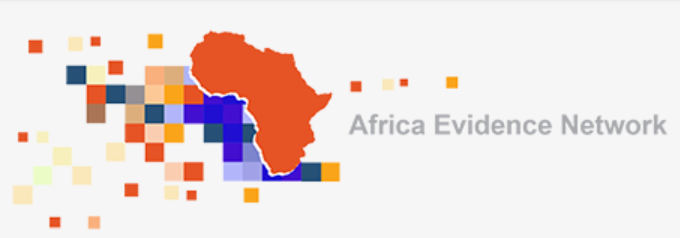
EVIDENCE 2016 delegates at the CSIR International Convention Centre in Pretoria/Tshwane, South Africa.
So you are preparing for EVIDENCE 2018 and have all the expectations of a good conference…………. Meeting someone whose work you have heard of and admired…….. going home with new connections excited about future collaboration……… surprising reunions………. learning about new ideas and interesting developments in your field………… input on the work you have shared ……………generally making that step towards making a difference in our region……….
EVIDENCE 2018 promises all of these things and more. This is our third biennial Africa Evidence Network conference.
The EVIDENCE conferences are the biggest platform for evidence-informed decision making enthusiasts across Africa – attracting friends from beyond the continent too – creating invaluable networks and partnerships. We include researchers, data specialists, evaluators, M&E officers, knowledge brokers, public servants, government officials, members of civil society, and students. In this community we engage – oh yes we do! We leverage our personal relationships and the more established institutional partnerships we represent to build an open community of people committed to producing and using evidence to make a difference in our region. And there is no better way and time to do this than at what promises to be the biggest EVIDENCE meeting yet. You are welcome to join us.
You see evidence-informed decision-making excites us because it leads to more systematic and well-appraised decisions and practices. This not only increases our own and the communities’ confidence in the decisions, but also makes them more equitable.
Our conference will cover the broad themes of engagement (with one another within our evidence ecosystem), understanding (of evidence and how it can make a difference) and impact (on decision-making and on priorities in our region).
In response to feedback from you and our other network members, we will have dedicated time during EVIDENCE 2018 to focus on (at least) four priority issues for Africa, exploring how evidence-informed decision-making can make a difference in these areas. These will include:
- Communicable diseases
- Good governance
- Quality education
- Climate resilience.
We will refine these in response to your input, abstract submissions, and developments in policy priorities in our region. This will allow us to build our shared knowledge and understanding, not only in theory, but also with concrete application to important issues. You will be encouraged to contribute not only to areas where you have expertise, but also in new areas of interest.
As with previous EVIDENCE conferences, we will meet in an informal and friendly environment, with innovative approaches to facilitate networking and knowledge exchange. There will be opportunities to attend workshops, for organisations to arrange their own satellite sessions, and for exhibition space. This is not a traditional conference, but a true networking event.
As you can see below, we all bring different backgrounds and experiences as Co-Chairs of the conference and very much hope that together we will deliver an event that exceeds all your expectations. We look forward to seeing you there.
EVIDENCE 2018 Conference Chairs
Dr. Shanil Haricharan, National Treasury, South Africa
Shanil Haricharan has a diverse professional work experience in the public sector as a senior official and advisor over the past 22 years in all three spheres of government, specialising in public management, leadership and organisational development. Promoting the use of evidence in public sector decision-making is a special interest area. To this end he has consulted to the South African Presidency’s Programme to Support Pro-poor Policy-making (PSPPSD) and the University of Johannesburg’s BCURE. Currently, he teaches public leadership and organisational behaviour on a MPhil programme at UCT’s Graduate School of Development Policy and Practice. For the past 12 years, Shanil has served as a senior technical advisor at the Technical Assistance Unit (TAU) and the Government Technical Advisory Centre (GTAC), agencies of the National Treasury.
Dr. Rhona Mijumbi-Deve, Africa Centre for Knowledge Translation, Makerere University, Uganda
Dr. Rhona Mijumbi-Deve is a health policy analyst and knowledge translation specialist at Makerere University in Uganda. She is a researcher with research interests in Health Systems and Policy, and evidence to policy and practice. She also has special interest in building capacity to strengthen health systems in low and middle income countries. She is currently the principal investigator for the “Using Evidence to strengthen health systems in Africa and the Middle East” (UsEvidence project), a collaborative project between Uganda, Zambia and Lebanon. She was instrumental in setting up the first rapid response service to meet policymakers’ urgent needs for health systems evidence in a low income country and continues to support the start of similar services in different countries. A medical doctor by training, Dr. Mijumbi-Deve has a master’s degree in Epidemiology and Biostatistics and another in international public health.
Prof. Ruth Stewart, Chairperson of the Africa Evidence Network
Ruth Stewart is the chairperson of the Africa Evidence Network, and Director the Africa Centre for Evidence at the University of Johannesburg. Having grown up in Malawi, she studied in the UK and has worked in South Africa since 1998, as well as with University College London’s EPPI-Centre. Her work includes the production of evidence for decision-makers, as well as supporting civil servants to access and make sense of research. Her work has included leading the University of Johannesburg-based BCURE programme, Building Capacity to Use Research Evidence amongst national governments in Africa.
She has a background in social sciences, and has worked across academia and government, with a commitment to engage with stakeholders in her research using a wide range of approaches. Prof. Stewart has worked for nearly twenty years on the production of synthesised evidence to inform decision-making, including systematic reviews, rapid evidence assessments, and evidence maps. She is committed to making a difference through her work by ensuring that research evidence is useful and used.
For more details on dates, registration and scientific programme:
W: http://www.evidenceconference.org.za/
#: #EVIDENCE2018 #Africalovesevidence